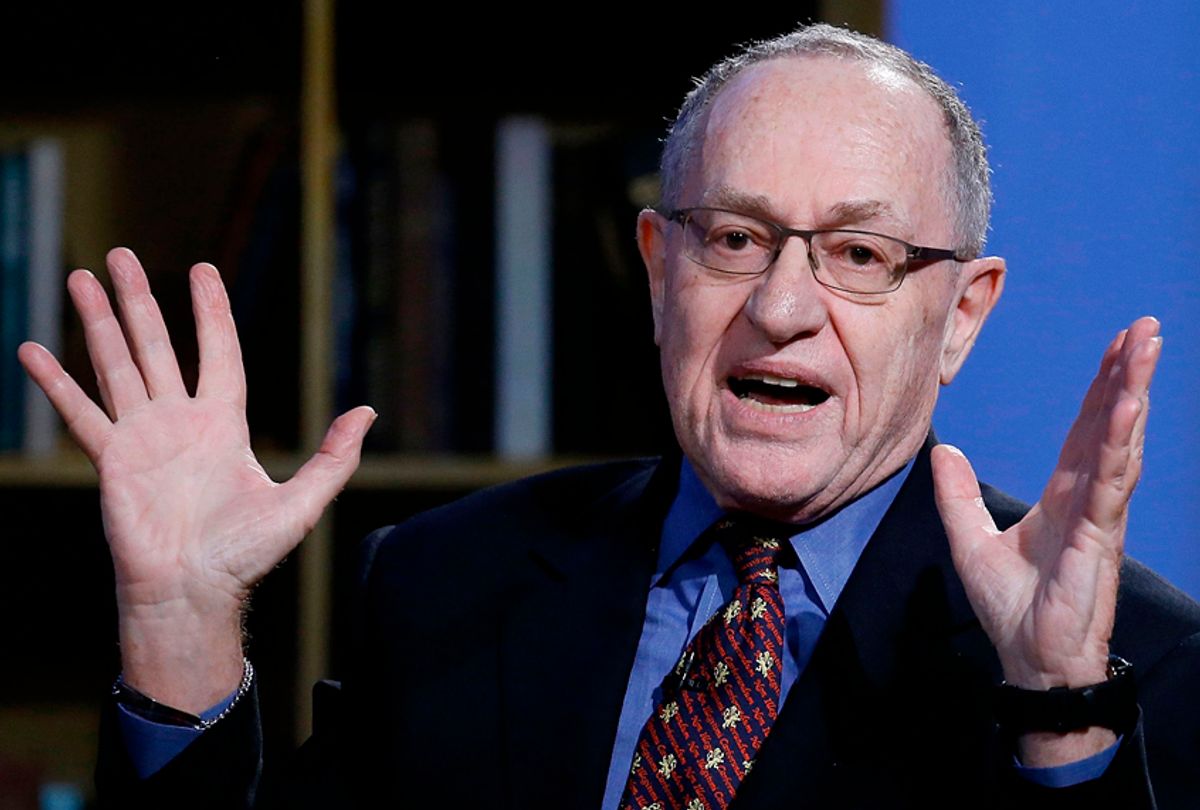President Donald Trump will announce the selection of his second Supreme Court justice Monday night at 9 p.m. ET.
Within a few days of Justice Anthony Kennedy's announcement that he would step down from the court this summer, the president had narrowed his search down to just four federal appellate-court judges — all are young and viewed as trusty conservatives.
Trump's final four include the runner-up from the last time Trump had to nominate a Supreme Court judge, Thomas M. Hardiman, who sits on the U.S. Court of Appeals for the Third Circuit in Philadelphia; Brett Kavanaugh, of the District of Columbia Circuit; Raymond Kethledge, a judge on the Sixth Circuit in Cincinnati; and Amy Coney Barrett, who sits on the Seventh Circuit in Chicago.
On Thursday, Alan Dershowitz, the famed attorney, constitutional scholar and author of the new book "The Case Against Impeaching Trump," offered some advice for Trump on his Supreme Court pick during an interview with Salon.
"I think he would benefit on the short term with his base, politically, if he nominated the woman from the seventh circuit, Judge Barrett," he said. However, Dershowitz referred to Barrett as a "dangerous" choice.
Alan Dershowitz: SCOTUS advice for Trump
Famed law professor opposes Trump's impeachment, but also dreads his Supreme Court pick.
"She not only believes there's no constitutional right to chose to have an abortion, she believes there's a constitutional right to life," he added. In other words, according to Dershowitz, Barrett might hold not merely that the 1973 Roe v. Wade decision should be overturned but that individual states cannot pass laws permitting legal abortion. "She believes the fetus is an innocent citizen of the country and that is very dangerous."
"Will she get the nomination?" he asked. "Probably not this time. But, stay tuned. She might get the next one."
As my colleague Matthew Rozsa writes, "Amy Coney Barrett brings certain obvious advantages and disadvantages for Trump. In addition to being a woman and thus potentially helping Trump stave off accusations of sexism, Barrett is also intensely religious and well-known to champion socially conservative positions that make her incredibly popular among the right."
According to Dershowitz, the nomination is between "two young white men -- well, very young compared to the Supreme Court." A reasonable guess would be that he means the president will choose either Hardiman or Kavanaugh.
"Remember, when we set up lifetime appointments to the Supreme Court, we expected people to be appointed at 50 and die at 55. Today people are being appointed at 40 and they're going to die at 95," Dershowitz said. "I don't think the framers contemplated anybody would serve as a judge for 50 years, but again, it's a dead Constitution."
When asked whether Trump should be able to nominate a Supreme Court justice while he is personally under investigation by special counsel Robert Mueller, Dershowitz said, "I don't think that's really a factor. It won't be a winning argument."
He continued, "There's one possible gambit that Democrats could conceivably try: It takes 51 senators to have quorum (the number of Senators required for the Senate to do business). If all 49 Democrats were to stay at home, and Sen. McCain couldn't make it to the Senate, they wouldn't have quorum." (McCain, the Arizona Republican, is seriously ill with cancer.
"Gambits" like that one are similar to the methods Senate Republicans employed to block Barack Obama's Supreme Court nominee, Merrick Garland, in 2017, Dershowitz noted.
"Republicans didn't even give Merrick Garland a hearing," he said. "I think it was not only politically illegitimate; I think it was constitutionally illegitimate."
"If I had been President Obama or if he had asked me advice on that, I would've said, 'Nominate him and swear him in as an interim justice, and then let the Republicans try to remove him," he added. "The Constitution doesn't say that the Senate has a right to sit on a nomination. It just says with the advice and consent of the Senate. That means to me up and down: You advise or you don't advise. You consent or you don't consent. You can't delay the way they delayed. I think that was unconstitutional."



Shares